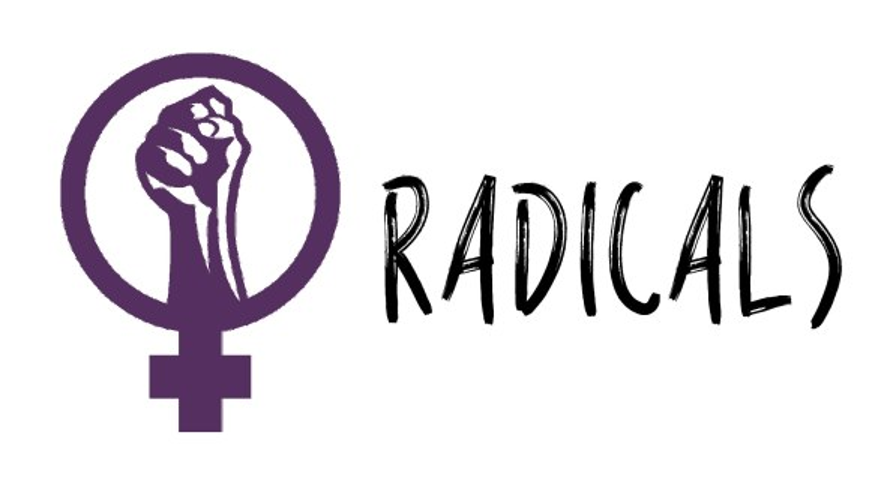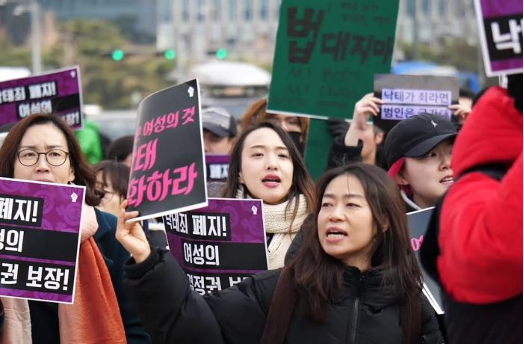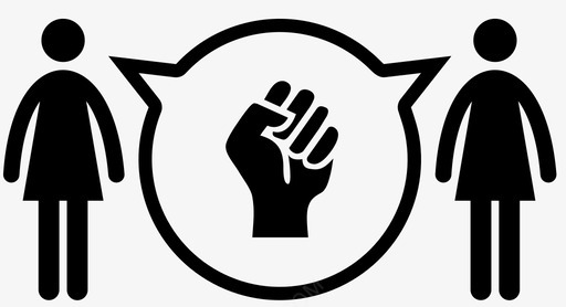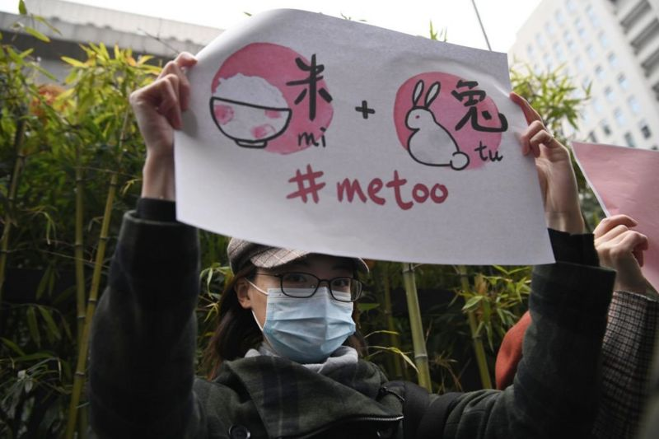
诞生于这个大时代,反对一切压迫和宰制的青年平台。关注思想交锋、社会运动,关心工人、农民、女性、全球南方等被损害者的真实处境,也通过写作和实践去想象、去创造别样的社会。网站:masseshere.com
Gender|Douban Radical Feminist Myths and Dilemmas

Text|Almond Dew for Blossom Viewing
After Xiao Meili and other feminist bloggers were hunted down and banned for their "Hong Kong independence" tendency, eight feminist groups in the Douban community were banned overnight. The Bankrupt Athens Academy Group, the Broken Pot Don't Drop Group, and the 6b4t Group are well-known "radical feminist" groups on Douban. The core consensus among members is that they are anti-marriage and anti-childbirth. At the same time, the word "6b4t" has become a banned word on the entire Douban platform (explained in detail below). As a result of this change, other groups that have similar ideas but have not attracted official attention due to their small size, such as the lesbian feminism group, have turned private, and the content of their posts is no longer visible to the public. After encountering the ban, members of the former bankrupt Athens Academy quickly formed a low-key new group called "Pretending to Live in 2137", and resumed a large number of high-quality discussions and document transfers. However, the new group was also banned in less than two weeks, with only over 8,000 members.

After the two "bombing groups", the radical feminists, who were already trapped in the debate with anti-feminists and moderate feminists, lost more and more room for defense and output of opinions . Whether it is bystanders or other feminists who oppose radical ideas, they have deeply misunderstood and stigmatized the views and groups represented by "radical women's rights".
What is Radical Feminism?
Radical feminism, also translated as radical feminism, originated in the United States in the 1970s and is more revolutionary and progressive than liberal feminism. Its advocacy mainly includes the critique of the patriarchal system, the female-oriented gender role and the critique of sexual relations.
In the Douban community, the specific claims of radical feminism can be found in the group rules. In order to ensure the depth and concentration of the discussions in the group and avoid taking up space for unconstructive repeated debates, radical feminist groups usually formulate some consensus among members, and only apply for membership if they agree. will be kicked out of the group. The basic consensus of the most representative bankrupt Athens College group with the largest number of people and speakers is: 1) Do not scold mistresses and prostitutes 2) The identity of a corrupt woman is contrary to women’s rights 3) Downward freedom (such as makeup, wearing high heels, detailed explanation see below) is not free and is not supported.
In addition, there are some common views among the group members, such as:
- Support 6b4t;
- Reflecting on one's own misogyny is the first step towards feminism;
- Oppose incorporation sexual behavior, and believe that incorporation is a reproductive behavior for women, because women’s sexual organs are not vaginas but clitoris, most women cannot achieve vaginal orgasm in incorporation sex, and there are risks of infection and pregnancy at the same time;
- Oppose sexual relationships and heterosexual narratives, believe that sexual desire is constructed by society rather than naturally formed, love is a brainwashing technique to maintain the marriage system, and encourage women to form non-sexual intimate relationships;
- Oppose the concept of transgender, only recognize the dichotomous biological sex of male/female, deny that gender can be determined by subjective psychological identity, because this psychological identity cannot be separated from the stereotypes of masculinity and femininity in patriarchal society, and deny male excision After the genitals and the vagina are created, they can become a woman.
Why Douban Radical Women's Rights Banned?
The common feature of the eight groups banned this time is that 6b4t is the consensus, and there are a lot of posts about anti-marriage and anti-childbirth . At the same time, posts such as "against inclusive sex" were also removed from other groups that were more promiscuous and not purely about women's rights.
What needs special explanation here is 6b4t, a concept borrowed from Korean women's rights. 6b means: do not marry men, do not fall in love with men, do not have sex with men, do not have children with men, do not consume misogynistic brands, do not support single women and do not support married women. 4T refers to: take off the corset, take off religion, take off idols, and take off house corruption. In short, it is to avoid the exploitation of women by avoiding heterosexual relationships under the patriarchal framework such as love and marriage, and at the same time form single-female mutual assistance to compensate for the lack of intimacy.

What is intriguing is that although 6b4t's proposition is classified as radical because it deviates from the traditional social framework, it does not have any "destructive power" when implemented in specific actions. 6b4t does not have any appeal to amend the law, nor does it have any intention of launching offline actions like the activists did a few years ago. In contrast, posts on Douban about fighting for surname rights, fighting for equal employment opportunities, or male-to-female vicious violence, even if they have a misogynistic tendency of "stirring up antagonism between men and women" and are dissatisfied with the existing system not deleted.
Radical feminists who advocate 6b4t discuss more about "self" than "society", and their posture is "rejection" rather than "fighting"-after all, once the narrative of love and marriage is cracked and completely separated from men, moderates will In the zero-sum game between women’s rights and male partners, the title rights and equal share of housework that women’s rights need to fight for do not exist; divorced from the context of spouse selection, male gaze and pathological aesthetic standards are also difficult to become shackles that need to be struggled to break free .
Therefore, the only thing they are worthy of official fear is the impact on the marriage system and fertility rate once the trend of anti-marriage and anti-childbirth becomes mainstream. Douban netizens speculate that the ban is closely related to the upcoming seventh census.
The Misunderstood Image of Radical Feminism
In the eyes of onlookers who don't know much about feminist trends in China, talking about radical feminism often reminds us of the incident of Weibo insulting Papi Jiang as a "marriage donkey" a few years ago, and the recent incident of Tsinghua Yao Bannan who was seeking marriage on Douban. The appearance-shaming thing. The group of people who think that under the banner of feminism, they insult ordinary women and attack men's self-esteem for no reason can be called radical feminism, and even synonymous with extreme feminism. But does radical behavior necessarily mean that those who commit it hold radical views? Conversely, do feminists who choose to embrace radical ideas necessarily export their views in inappropriate ways? In fact, issues such as fighting for the right to bear surnames and requirements on men's appearance, because they are closely related to sexuality and marriage, are more classified into the category of moderate feminism, rather than the focus of radical feminism.
Distinguishing between moderates and radicals in a movement must start from the viewpoints they hold, not deduce their positions from the way they export their viewpoints. Radical feminists get their name because they are more determined than liberal feminists to reject social conventions such as make-up, sexual relations, and marriage institutions. It does not mean that their misogyny is stronger and more aggressive. high. In the same way, to criticize radical feminism because of the aggressive behavior of some people is to completely fail to distinguish who you are talking about. The biggest harm caused by this kind of false accusation is that people will associate radical feminist theory with the radical personality of radical feminists (actually not necessarily this group of people), and label "anti-marriage and anti-childbirth" based on preconceived ideas. The label of radical behavior further deprives radical feminists of the space for rational discourse on their views.

Daddy Feminism and Downward Freedom
If the act of conflating radical stances with radical behaviors and criticizing them is due to the alienation and lack of awareness brought about by the status of a bystander, then what is more worthy of attention is the internal differences among feminists in the Douban community. Just the day before the radical feminist group was banned, a post that popularized that incorporation is male-oriented reproductive behavior and called for the rejection of incorporation sex because of its radical language (pointing out that in the case of women unable to achieve vaginal orgasm Still adopting inclusive sexual behavior is equivalent to voluntarily becoming a "constant temperature aircraft cup"), which aroused the resentment of moderate feminists, accusing radical feminists of "restricting women's behavior" is no different from patriarchal discipline, which is a different set The "new female virtue" of rhetoric.
In addition to sexual relations, the most discussed in the group with a large number of people and mixed positions is the meaning behind women's makeup and other behaviors that cater to mainstream aesthetics. Liberal feminists vehemently refute the accusation that "dressing up is an act of flattering men" (this accusation came from men in the past, and now seems to come from radical feminists in the eyes of liberals), and believes that women themselves have and need to strive for the freedom to please themselves ; Radical feminists pay more attention to the motivation behind women's mentality of "focusing on appearance to gain their own value" . They believe that at a time when women are more or less influenced by patriarchal aesthetics, it is not appropriate to declare that makeup is completely "voluntary". Reasonable (voluntary does not equal free). The same logic can be applied to behaviors classified as "downward freedom" by radical women's rights, such as being a housewife and giving up the right to name a surname. Striving for downward freedom is actually a regression.
It is precisely because of the clear rejection and severe criticism of downward freedom that radical feminism has been dubbed "father-like feminism" and misunderstood as having the same arrogance and misogynistic mentality as patriarchy. It needs to be admitted that the practice of expressing opinions in words that directly offend others lacks literacy, and it is more difficult to obtain the approval of the other party, but it is indeed an unavoidable phenomenon in online interaction. For example, "marriage donkey" is used to describe women who give up their careers in the name of love and do not get enough housework compensation and maternity compensation. Offenses are caused personally, and the measure of them is even more difficult to grasp in the communication of Internet forums.
But the analogy between radical feminist claims and patriarchal discipline is undoubtedly a false accusation. Patriarchy prevents women from wearing make-up, wearing revealing clothes, and engaging in sexual behavior out of the desire to control women; radical feminism is opening up other options for women other than "freedom" under the framework of patriarchy, that is, not gaining self-identity through appearance , the freedom not to rely on men for sexual pleasure. Unlike patriarchy, which despises housewives and wants to achieve the purpose of denying women’s rights in marriage, radical feminism opposes the happiness narrative of housewives, and its purpose is to encourage women to enter the public sphere and become economically independent. The premise of the term "misogyny" is to treat women as objectified second sexes, and radical feminism based on women's rights is exactly the opposite of misogyny.
Furthermore, those who violate the patriarchal discipline will face the loss of the opportunity to be selected by a male partner and enter an intimate relationship, as well as punishment from public opinion and the system. "Discipline" itself is the behavior of superiors towards subordinates, and only the party that holds power and can impose punishment has the ability to discipline. This is not the same as the so-called "maliciousness" embodied in words such as "marriage donkey" and "constant temperature airplane cup". The patriarchal society has harvested women's sexual value, reproductive value and housework through discipline, and radical feminism is not profitable for women of the same kind.

Separation of seats with a slanted sword?
In the above-mentioned debates, radical feminists are often regarded as the party that voluntarily cut seats because other feminists could not reach the "threshold", especially the "no mutual assistance with married women" in 6b4t, which was accused of destroying the unity among women . Some commentators denounced the position of radical feminist discrimination (specifically, the non-recognition of transgender women as women), arguing that women and transgender people are both victims of patriarchy and should not fight each other.
Those who make these criticisms fail to notice the distinction between position and strategy, revealing bystander ignorance of the complexities of women's plight. The position is based on theory and needs to be repeatedly refined and debated more and more clearly. Blindly obsessed with the discussion under the grand narrative of "women's community" and "unity with disadvantaged groups", it is chaotic and difficult to make sense of. As for the strategy of unity and division, it depends on the specific development of the movement.
However, how much practical significance does the unity achieved by sacrificing adherence to some viewpoints have in the context of China? The greatest contribution of Internet feminism in Mainland China is to awaken women oppressed by patriarchy through the dissemination of knowledge. As for relying on the power of the masses to promote changes in laws and systems, it is even more distant considering the heavy price to be paid for the development of offline movements. In this case, "seeking common ground" between different feminist schools or disadvantaged groups may not be more important than "reserving differences". If the analysis and criticism of the marriage system are abandoned in order to unite married women, and if transgenders are forced to agree that gender is not defined by biology but subjectively in order to unite married women, then feminism will lack a very important narrative space and room for discussion.
The moral requirement that feminists "should be tolerant and fraternal" completely reverses the original intention of women to become feminists—not because of the superiority of their values, but only as a victim to resist oppression. The action of feminists is not to stand on the high ground of human rights and call on those with vested interests to give up their privileges, but to preserve their own resistance movement, and they do not need to be the unimpeachable Holy Mother of all sentient beings. Who is qualified to make further demands on victims and resisters? Radical feminists who point out the oppression of marriage and childbirth to women and voluntarily give up marriage and childbirth, even if they do not want to spend energy to fight for the rights and interests of women who voluntarily choose to marry, because the way they fight lies in their choices about personal life, they have no objection to Married women cause any real harm in the real sense, and it does not constitute a reason to accuse radical women's rights.

write at the end
In addition to the "force majeure" factor of narrowing the voice space, the biggest dilemma faced by radical feminists at present is the embarrassing situation where it is difficult to understand each other when their views collide with moderate feminists. Rebuke and "guidance" from the outside world or patriarchy can be ignored. After all, as mentioned above, radical feminism does not aim to win the approval of those with vested interests.
On the night when the eight feminist groups were blocked, other female-dominated Douban groups were filled with fierce statements such as "After tonight, moderates will become radicals" and "If you don't stand up today, you won't stand up tomorrow." However, in addition to slogan-style statements, has the experience of radical women’s rights really promoted the sympathy and understanding of moderates and affirmative parties? Today, when discussions initiated by radical women's rights are deleted more and more quickly, it seems to be unknown.

Like my work?
Don't forget to support or like, so I know you are with me..

多数派正在派送中

诞生于这个大时代,反对一切压迫和宰制的青年平台。关注思想交锋、社会运动,关心工人、农民、女性、全球南方等被损害者的真实处境。
Comment…